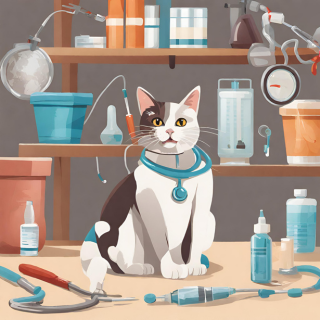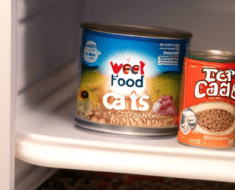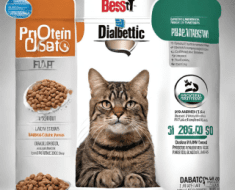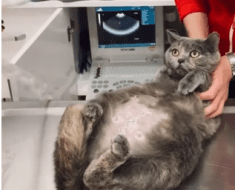Cats are beloved members of many families, and like any other pet, they need proper healthcare to live long and healthy lives. One key aspect of a cat’s healthcare regimen is vaccinations. Vaccines protect cats from various illnesses and diseases, some of which can be life-threatening. But what vaccines does your cat need? Let’s explore the essential vaccinations to ensure your feline friend stays healthy.
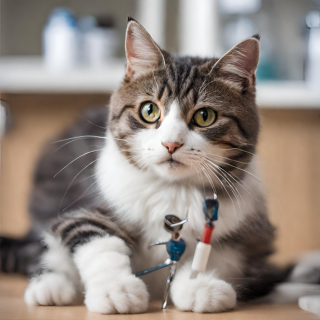 Understanding the Importance of Vaccinations
Understanding the Importance of Vaccinations
Vaccinations are crucial in protecting your cat from a range of potentially life-threatening diseases. By administering the appropriate vaccines, you can safeguard your feline companion from contracting and spreading these illnesses, ultimately contributing to your pet’s overall well-being and the community at large.
Essential Vaccines for Cats
Regarding feline vaccination, several essential immunizations are recommended to keep your cat in optimal health. Let’s take a closer look at these key vaccines:
Rabies Vaccine
The rabies vaccine is perhaps the most well-known vaccination for cats, and for good reason. Rabies is a fatal disease that can affect both animals and humans, making it a significant public health concern. In many regions, including the United States, vaccinating cats against rabies is mandatory due to the potential risk to human health. Rabies vaccinations typically start when a cat is around 12 weeks old, with booster shots administered periodically based on local regulations and the type of vaccine used.
Feline Distemper (Panleukopenia) Vaccine
Panleukopenia, also known as feline distemper, is a highly contagious and potentially fatal viral disease that affects cats. Vaccination against this disease is essential in preventing its spread and protecting cats from the associated suffering. The initial vaccination usually occurs at around 6-8 weeks of age, with boosters given every 3-4 weeks until the cat reaches 16 weeks of age. Additional booster shots are administered based on the cat’s lifestyle and risk of exposure.
Feline Herpesvirus and Calicivirus Vaccine
Both feline herpesvirus and calicivirus are common causes of respiratory infections in cats. Vaccines targeting these viruses help reduce the severity and spread of these infections. These vaccinations are often combined with the feline distemper vaccine as part of a core vaccination package for cats. Boosters for these vaccines are typically recommended annually, although the specific schedule may vary based on the cat’s risk of exposure and local guidelines.
Feline Leukemia Virus (FeLV) Vaccine
The feline leukemia virus is a major concern for cats, especially those who spend time outdoors or live with other infected cats. The FeLV vaccine can help protect cats from this contagious and potentially life-threatening disease. Kittens are often vaccinated between 8-12 weeks of age, with additional boosters given to provide continued protection. While not considered a core vaccine for all cats, the FeLV vaccine is recommended for those at high risk of exposure.
Vaccination Schedule and Considerations
It’s important to work closely with your veterinarian to develop a vaccination schedule that is tailored to your cat’s individual needs. Kittens typically receive a series of vaccinations starting at around 6-8 weeks of age, with booster shots administered at specific intervals to ensure ongoing immunity. Adult cats will also require regular booster vaccinations to maintain their protection against various diseases.
General Vaccination Schedule For Cats
| Vaccine | Recommended Age | Booster Intervals |
|---|---|---|
| Rabies | 12-16 weeks | Every 1-3 years |
| FVRCP | 8-9 weeks | Every 1-3 years |
| FeLV | 8-9 weeks | Annually high-risk cats |
While following a general vaccination schedule is important, your veterinarian will take into account various factors such as your cat’s lifestyle, environment, and overall health when determining their specific vaccination needs. Additionally, by staying informed about any local or regional disease prevalence, your veterinarian can make personalized recommendations for your cat’s vaccination protocol.
Final Thoughts for Cat Vaccinations
Keeping your cat up to date with their vaccinations is an essential part of being a responsible and caring pet owner. By understanding the importance of vaccines and working closely with your veterinarian, you can provide your feline companion with the best possible protection against a range of infectious diseases. Remember, a healthy cat is a happy cat!
Thank you for taking the time to learn about the crucial vaccinations that your cat needs. By prioritizing your cat’s health and well-being, you are making a lasting investment in their quality of life.
Frequently Asked Questions For What Vaccines Does My Cat Need: Essential Guide For Pet Owners
What Vaccines Does My Cat Need?
Vaccines play a vital role in ensuring the health and well-being of your furry friend. Here are some common vaccines your cat may need:
Should I Vaccinate My Cat Against Rabies?
Yes, vaccinating your cat against rabies is crucial for their safety and is required by law in many areas. It protects both your cat and other animals from this deadly disease.
Is The Fvrcp Vaccine Necessary For My Cat?
Absolutely! The FVRCP vaccine is essential as it protects against three highly contagious and potentially fatal diseases: feline viral rhinotracheitis, calicivirus, and panleukopenia. Preventing these illnesses is paramount.
Does My Indoor Cat Need Vaccines Too?
Indeed, even if your cat stays indoors, vaccines are still recommended. Indoor cats could accidentally escape or get exposed to diseases through contact with other pets, insects, or even you. Protecting them is crucial.
